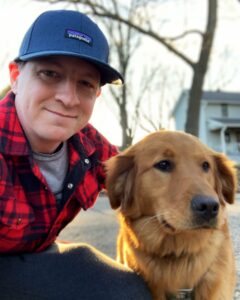Confessions of a Steward with Joel Salatin
The current darling of the industrial food system is fake meat or lab meat. Proponents argue that this will save the planet from the ravages of domestic livestock, offer better nutrition, and eliminate the ethical and moral dilemma of killing things for human sustenance. I’ll deal with the first two quickly to put attention on the third one, which can be a stumbling block for people of faith.
The “animals are destroying the environment” mantra has numerous flaws, but the biggest one is that 500 years ago, the world had more pounds of animals on it than it does today, including people. In other words, if you could put all terrestrial non-plant life on a scale, the weight centuries ago is more than it is today. In fact, in the U.S., the pounds of domestic livestock have not changed in more than a century. In 1900, a third of the weight was in draft power: mules, horses, and oxen. Even with industrial factory farming, the total pounds of animals has not exceeded what it was in 1900. I’m including wildlife here as well.
Clearly animals are not the problem. I agree that the protocols to raise animals in confinement are not ecologically beneficial but blaming animals for farmers’ failure is neither honest nor fair. Animals can be—and have been—grown in ecologically beneficial ways for millennia. The deepest soils on the planet are all under grasslands, not forestlands.
The second argument is about nutrition. Supposedly red meat increases the risk of cardiovascular problems and colon cancer. The only problem with this notion is that America’s per capita consumption of beef has been falling annually for the last thirty years, while these diseases have been increasing. Without getting into the scientific nitty-gritty, the red meat = disease theory simply doesn’t stand the test of even cursory perusal.
But what about this moral and ethical dilemma? It’s touted by fake meat proponents in every flier, every news interview. It’s a big deal. As a livestock farmer, I’ve certainly been accused of being a murderer or being unable to love because I kill animals. This sentiment is not going away; in fact, it’s getting stronger by the day. As a Christian, I really don’t like to be called a murderer.
A bit of historical context can help us appreciate the roots of this issue. The year 1837 was an interesting confluence of three things. First, a British scientist named Charles Darwin set sail on The Beagle. Father of evolution, Darwin’s observations led him to conclude the biblical creation narrative is a myth and that humans evolved from monkeys. He took God out of life.
The same year, an Austrian chemist named Justus von Liebig, trying to solve the soil fertility problem, used vacuum tubes to isolate nitrogen, potassium, and phosphorus (NPK), announcing to the world that all of life is simply a rearrangement of these three elements. Think about how that supplemented Darwin’s ideas that God wasn’t necessary. Life was simply an inanimate pile of protoplasmic structures.
The third 1837 occurrence was Cyrus McCormick’s invention of the reaper in his blacksmith shop on the family farm in Raphine, Virginia. This is now viewed as the official start of the Industrial Revolution because it made the scythe obsolete. McCormick’s reciprocating cutter bar is still the backbone of modern grain and forage harvesting equipment. With Darwin’s Godless existence, Liebig’s lifeless existence, and McCormick’s mechanical inven-tion, the new enemy of biblical faith was not paganism, animism, or pantheism; it was no-theism and a mechanical view of life.
Gradually, life became less about biology and more about mechanics, physics, and chemistry. Today’s effort to take life out of food is a natural extension of taking biology out of life. We should not be surprised that artificial food follows artificial fertilizer. Our nation has embraced artificial food for some time, from squirtable cheese to high fructose corn syrup.
The foundational idea that you can have life without death is not only fairly new in human history but is also fundamentally an assault on truth...
To read the full story, purchase this digital back issue:
Subscribe today to get the full stories in print each month!
Or purchase a March 2023 back issue in print here.
__________
Joel Salatin co-owns, with his family, Polyface Farm in Swoope, Virginia. Four generations of his family currently live and work on the farm, and his farm services more than 5,000 families, 50 restaurants, 10 retail outlets, and a farmers’ market with salad bar beef, pigaerator pork, pastured poultry, and forestry products. When he’s not on the road speaking, he’s at home on the farm, keeping the callouses on his hands and dirt under his fingernails, mentoring young people, inspiring visitors, and promoting local, regenerative food and farming systems. Salatin has published 15 books, and he is the editor of The Stockman Grass Farmer, granddaddy catalyst for the grass farming movement. He passionately defends small farms, local food systems, and the right to opt out of the conventional food paradigm.










Leave a Reply